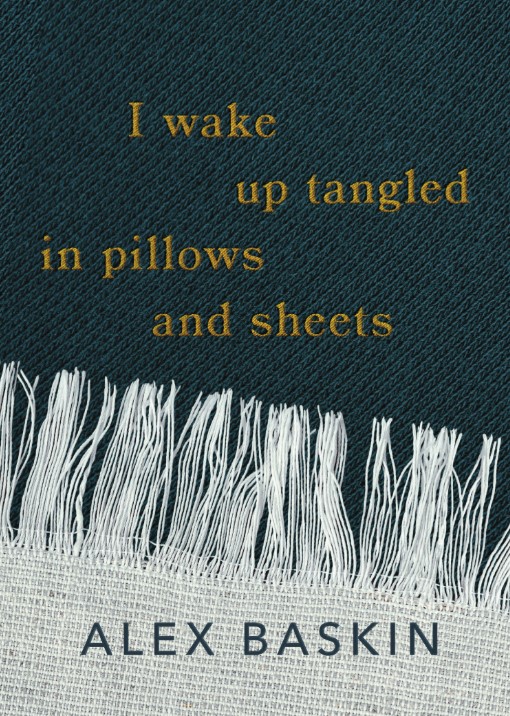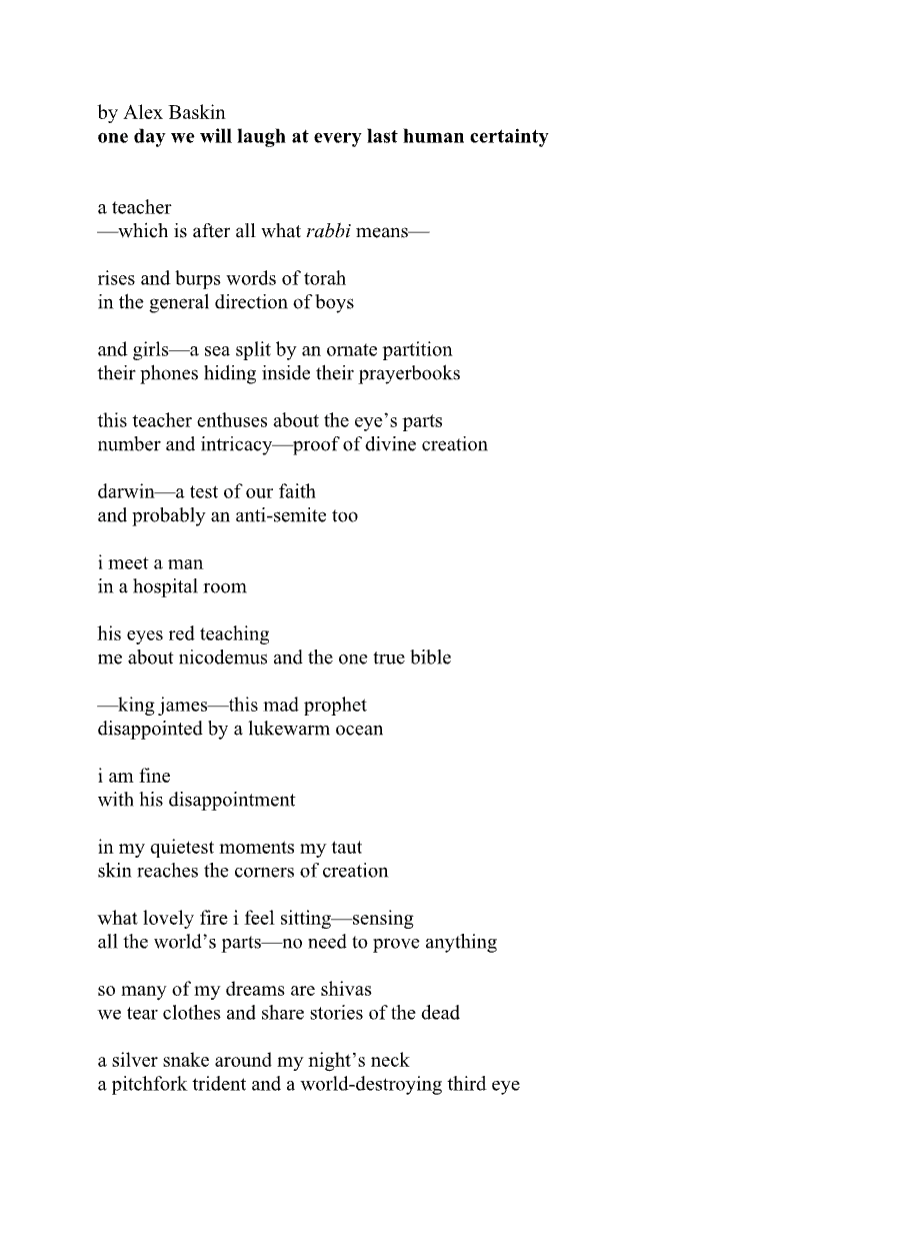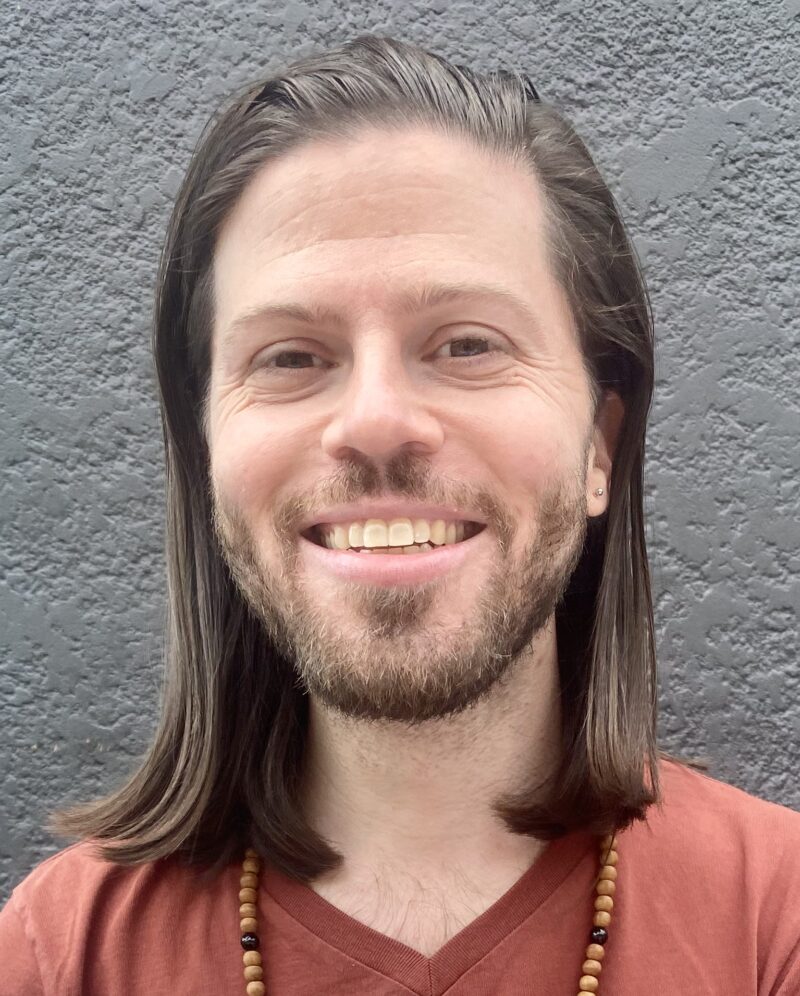When did you first encounter poetry? How did you discover that you wanted to write poems?
I guess I first encountered poetry in high school, and I mostly did not like it. Maybe that was because we read the driest corners of the canon, or maybe it was that poems had emotions in them and that made my teenage self uncomfortable. Either way, I had tons of resistance to poetry.
But then in college, I started writing fiction, which made me more attentive to language in literature in general. And then I came across an incredible Joe Brainard poem; here is the whole thing: “Sometimes/ everything/ seems/ so/ oh I don’t know,” and that taught me that poems can express aspects of human life that would otherwise be impossible to convey. Somewhere in there, writing fiction turned into writing poetry.
Do you have a writing routine? A favorite time or place to write?
Oh man, I’m really disorganized about my writing and, like, sporadic about it overall. Not all of us can manage a respectable routine, okay? But often when I get excited about an idea for a poem, it takes up my life, like a ton of my headspace, until I can write it out and feel relatively satisfied with my treatment of it. And yeah, I am not precious about my writing: it’s usually on my laptop, but I use the notes app on my phone, and I scribble things down on scrap paper next to my bed. Whatever, wherever. And of course, then lots of revision.
Where do your poems most often “come from”—an image, a sound, a phrase, an idea?
You know, often it is a memory—many of my poems draw on recent and distant memories, usually rooted in image. Often, those come to me in quieter moments in my life, like in meditation or just when eating a meal by myself on my porch. Like one day out of nowhere, I was struck by a recollection of a moment with a religious high school teacher lecturing us on his skepticism re: the theory of evolution. That became “one day we will laugh at every last human certainty” (which I include below).
Which writers (living or dead) have influenced you the most?
I recently read an interview with the writer and activist Stephen Jenkinson, who said something like, “Anyone who claims to know their influences probably doesn’t,” and I think there is a lot of truth in that. These things can be quite subtle and unconscious. But yeah, I love many poets: Ocean Vuong, Ross Gay, Ada Limon, Victoria Chang, Kaveh Akbar, Hanif Abduraqib.
What excites you most about your first chapbook?
My uncle studied acting, and he told me that he heard from a teacher that “no one is boring when they’re talking honestly about themselves.” My chapbook is very raw and personal, and I’m excited by the risk of that. Nervous too! (So connected are those two feelings—nervous and excited, right?) But yeah, I am hoping that the reader, in hearing the sound of my voice in their head in all my particularity, may feel some connection to the truth of their own life. It’s that idea that a vivid portrait of someone else’s life helps us better understand our own.


Select the cover to read more.
Alex Baskin is a hospital chaplain and a poet, rooted in over a decade of Buddhist practice and his upbringing in an orthodox Jewish family and community. He holds a bachelors degree in philosophy from Tufts University and a masters of divinity degree from Harvard Divinity School. His poetry has appeared in Gulf Coast, Redivider, The Christian Century, poetry.onl, and elsewhere. Originally from New Jersey, he lives in Massachusetts.

